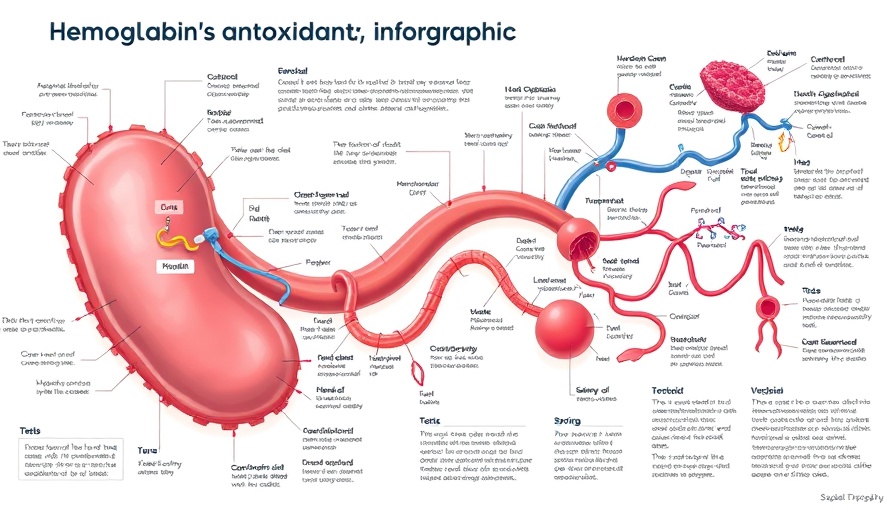
Discovering Hemoglobin's Role in Brain Cell Health
Recent research highlights an intriguing role for hemoglobin, traditionally known for its crucial function in oxygen transport in the bloodstream, as a potential antioxidant in brain cells. This groundbreaking discovery has opened a new therapeutic avenue that may lead to innovative treatments for neurodegenerative diseases such as Alzheimer’s and Parkinson’s.
The Science Behind the Discovery
Researchers found that hemoglobin can scavenge free radicals, which are unstable molecules that can cause oxidative stress and damage cellular components. Oxidative stress plays a significant role in various neurological disorders. By tapping into the antioxidative properties of hemoglobin, scientists envision strategies that could enhance brain health and longevity.
Implications for Health and Wellness
This research aligns with the growing interest in health and wellness approaches that focus on maintaining brain function as we age. Understanding the antioxidant roles of hemoglobin could shape future health and wellness practices, particularly for community health initiatives aimed at improving mental and cognitive vitality.
Innovative Treatment Options on the Horizon
The implications of hemoglobin as a brain cell antioxidant extend beyond basic science. Potential treatments could incorporate hemoglobin derivatives or mimic its action to reduce oxidative stress in neural pathways. This aligns with the shift toward complementary and alternative medicine, as many individuals seek natural therapies for conditions previously thought untreatable.
Expert Insights on the Future of Naturopathic Medicine
Experts in the field of naturopathy suggest that harnessing hemoglobin's antioxidant properties could lead to a new category of natural supplements aimed at improving mental acuity. Incorporating nutrition with these new treatment approaches can help create a holistic treatment plan, which is an essential component of health and wellness in San Antonio as well as globally.
Public Health Awareness and Education
As these findings gain traction, public health campaigns must adapt to educate communities about the significance of hemoglobin and its antioxidant properties. Ongoing health and wellness events can play a pivotal role in disseminating this information, allowing individuals to make informed decisions about their health.
Conclusion: Embracing New Therapies for Better Living
The potential of hemoglobin as an antioxidant opens a promising chapter in neuroscience and medical treatments. As communities become more engaged with health and wellness, embracing such research findings can lead to better living and optimized health outcomes. To learn more about innovative health practices and the latest in natural therapy research, get involved in your local health and wellness resources today.
 Add Element
Add Element  Add Row
Add Row 



Write A Comment